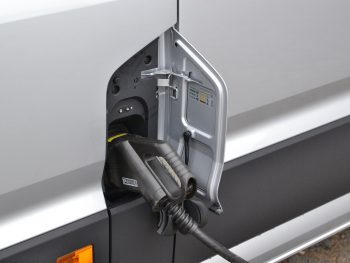Official electric van range figures ‘almost useless’, AFP members report
Real-world ranges for electric vans are falling far short of WLTP figures, prompting a call from fleets for more accurate range labelling.

Cold weather has the biggest impact on range but other issues are emerging too
The Association of Fleet Professionals said members running eLCVs were seeing vast degrees of variation in operation across different conditions – including a drop in range of almost 50% during the coldest winter days on occasions when there was no opportunity to precondition the battery.
Paul Hollick, chair at the industry body, explained: “We now have a number of fleets who have operated electric vans for a reasonable period of time and crucially, through the recent winter. The differences in range that are being reported on some models are, we believe, a cause for concern.”
The impact of colder weather is the biggest factor and is far from “the relatively minor variations in range that might be reasonably expected”.
But Hollick said other issues were emerging, too.
“Payload was already known to have a negative impact – although its extent has proven to be a surprise to some operators – but the effect of commonly used fittings such as roof racks and ladder loaders are proving noticeable.”
It’s meant that some fleets are unsure in winter conditions whether their eLCVs can complete the routes on which they were normally used.
“We definitely have members who feel as though they have been misled over the potential range of some electric vans they have bought and have generally lost confidence in them. There is a feeling that the WLTP figures being produced are often almost useless as an indicator of actual range and something much closer to real-world figures is required.”
Hollick said member feedback showed that electric van range is a much more complex subject than cars.
“The weights that company cars carry vary but by not by too much in the vast majority of cases, so shifts in the distance that can be covered are much less dramatic. This is not the situation for vans and ideally, we’d be looking for different official tests for warm and cold weather conditions, with different payloads, towing and more.
“How the situation could be improved in the short term is unclear. WLTP is an agreement created under a United Nations initiative, so not easily changed. We are probably looking for the government or a widely recognised official body to hopefully step into the breach. It’s a question of providing data that allows fleet operators to make an informed choice.”
The AFP emphasised that it remained a strong advocate of electric vans but there were a number of difficult issues that members were experiencing as they underwent the process of adoption.
“It’s clear that the electrification of the van parc is turning out to be much more demanding than has so far been the case for cars, with range, charging and payload very much proving stumbling blocks for many. However, our members are working through these problems by sharing information, advice and best practice.”

